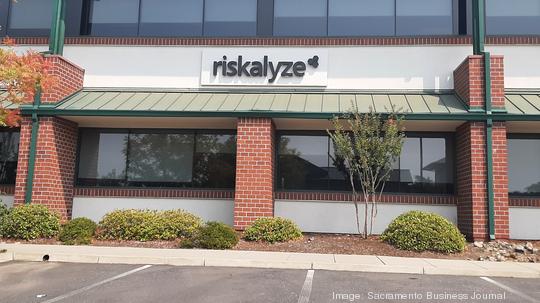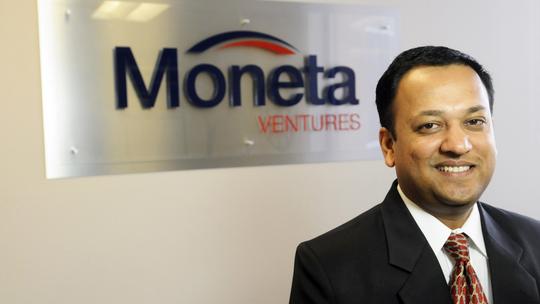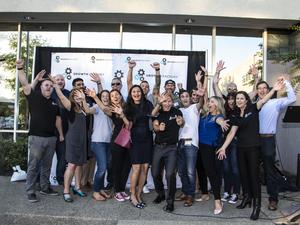
In the past four quarters, $1.6 billion in venture capital and private equity investments has been made in companies in the Sacramento area, more than the total previous four years combined.
The massive increase in funding shows a rise in the maturity and quality of local companies as well as a global increase in private equity investment, observers say.
The wave of investment money flowing into the region could have major implications in the future as those companies mature further and then have significant capital to grow and employ more people. They could also attract more money to the region as they grow, are bought out by private equity investors or sell stock to the public.
“We’ve been waiting for a long time for this level of funding,” said Curt Rocca, managing partner at DCA Partners, a private equity firm based in Roseville. “I’ve been seeing the announcements of fundings, but you forget about them. When you see them all together, it is pretty impressive.”
The largest investment locally was the about $800 million that New York private equity firm Lightyear Capital LLC and the Toronto-based Ontario Teachers’ Pension Plan paid in October 2020 to buy the interest of Parthenon Capital, the Boston-based private equity fund that invested in Folsom-based financial planning firm Allworth Financial three years ago and assisted it with growth capital. Since the new money last year, Allworth has completed eight acquisitions on its way to building a national operation.
The next-largest transaction was in August this year when London-based private equity firm Hg paid $305 million to buy out the interest of San Francisco private equity firm FTV Capital in Auburn-based financial technology company Riskalyze Inc. FTV had invested $20 million in Riskalyze in 2016. FTV cashed out at four times its investment, and the earliest investors in Riskalyze fared even better, with 50 times their investment, made to the 2011 startup during seed rounds in 2012 and 2013. Later angel investors, who generally invested in 2014, will see a 21-times return on their investments, according to a letter Riskalyze sent to shareholders.

El Dorado Hills-based artificial intelligence hardware and software developer Blaize raised a $71 million round of venture capital in July to grow and expand the company’s deployment of chips for edge computing. Blaize began delivering its chips to customers last year. The new money is being used to expand outreach to new customers in the automotive, retail, municipal government and industrial markets.
Searching for better returns
Rocca said that many more investors have been searching for alternative investments in recent years. Stocks have seemed expensive for some time, he said, and real estate investing is getting more difficult with less reward as investment properties are selling at record high valuations relative to their expected incomes.
“It’s been a difficult time for a lot of people to figure out where to put money, and private equity has been having record returns,” Rocca said.
The past couple of years have also seen some democratization of investment by groups other than traditional venture capital investors, said Jack Crawford, founding managing partner of Sacramento-based Impact Venture Capital. That may be benefiting Sacramento.
Whereas venture capital tended to go to the Bay Area for big investments, corporate investors, angel investors and private equity investors are less concerned about location, Crawford said. “Corporates will invest anywhere. Private equity will invest anywhere. This just shows that Sacramento has talented entrepreneurs.”
![Jack Crawford[1]](https://media.bizj.us/view/img/11499946/jack-crawford1*540xx3024-4032-0-0.jpg)
He added that crisis leads to invention and innovation, and the Covid-19 crisis has accelerated adoption of many new technologies.
“Home delivery of everything, Zoom and remote school all existed before the pandemic, but their adoption so quickly was pushed by the pandemic,” he said. “These were seen as promising technologies, maybe five years down the line, but they were accelerated by the pandemic to instant widespread use.”
For the past 30 years, private equity investments have outpaced the performance of public equities equivalents nearly every year, and that is including some surging years in stock markets, said Ben Harrison, president of financial services at Intapp Inc., whose DealCloud is a cloud-based investment management platform for private investors.
Private companies are also a more target-rich environment, as the number of private companies with more than 500 employees has grown by 60% over three decades, while the number of public companies has declined by about 36% in the same period.
Private equity investing is “pretty red hot out there now. The dealmakers are out hunting for companies to invest into, and it’s not just companies inNew York or San Francisco,” Harrison said.
He added that the middle market, investments in the size range of roughly of $20 million to $500 million, “is white hot.”
Private equity investment is also generally better suited to grow smaller companies than capital from selling stock to the public, Harrison said. Private equity tends to be more patient capital that comes in to support a business’s growth, he said. That contrasts with when companies go public, which puts them under pressure to beat quarterly earnings projections.
Local success
Many more of the growth companies in the Sacramento area are gaining scale enough to attract investor attention, said Lokesh Sikaria, managing partner of Folsom-based venture capital firm Moneta Ventures.
“Obviously, everybody is benefiting because there is a lot of money in the market,” Sikaria said. But the companies themselves are also maturing, and they are therefore attracting larger investment rounds, Sikariasaid.

“As these companies mature, the location becomes less important. You are seeing that with startups. They aren’t trying to be in the Bay Area,” Sikaria said. “If you can scale the business, nobody cares where you are.”
And to a greater extent than in the past, investors in Sacramento region companies have seen some successful exits, with local early investors in companies like Pondera Solutions and Riskalyze now potentially ready to invest their profits into more startups.
Pondera, a Folsom-based provider of technology to combat fraud in government programs, was acquired by business information service provider Thomson Reuters Corp. for $125 million in March 2020.
“That is how Silicon Valley became what it is,” Sikaria said. “The money just goes around, and success can breed success.”
The sudden prevalence of virtual meetings has also leveled the playing field for companies seeking investors and employees.
Sikaria said he’s had video conferencing equipment in his office for a decade, but it was seldom used.
“It used to be if you had a video call, it was an event,” he said. “Now everyone does it all the time. You can do it from your phone in your kitchen.”
Private equity is the hot sector in the investment market, said Sanjay Varshney, a finance professor at California State University Sacramento, and founder and principal at Goldenstone Wealth Management in El Dorado Hills.
He added that in the late 1990s, companies that went public were on average 4 years old. Now companies tend to stay private longer, perhaps a decade or more. Often, it’s venture capital and private equity that supply money to those companies, and those investors tend to earn more over time than if there were an earlier IPO.
The year 2021 was also significant locally for three home-grown companies making the move to public markets, either through initial public offerings or through special purpose acquisition companies.
The three IPOs this year were also large by local standards. The previous decade saw only two companies reach IPOs, and they were smaller offerings. Davis-based Marrone Bio Innovations Inc. went public in 2013, raising $56.4 million after expenses. And Davis-based Arcadia Biosciences Inc. went public in a 2015 IPO that raised $68.2 million.
The three companies that went public this year raised $1.77 billion combined. It was a veritable flood following a drought of seven years when no local companies achieved an IPO.
Folsom education software company PowerSchool Holdings Inc. went public in July, raising $766.1 million net of underwriting costs and commissions, in the largest IPO by a Sacramento area company in recent memory. Rancho Cordova bank holding company Five Star Bancorp raised $109.5 million in an IPO in May. And West Sacramento zero-carbon plastic technology company Origin Materials Inc. was taken public in a more than $900 million merger with a special purpose acquisition company, completed in June. SPACs, which are sometimes referred to as blank-check companies, have no specific business plans or purpose other than to pursue mergers or acquisitions.
Those formerly private companies now have public stock that they can use as a currency to make future deals, and thus grow by acquisition. PowerSchool, whose IPO was this summer, has already announced the acquisition of Kickboard, a school technology company based in New Orleans.









